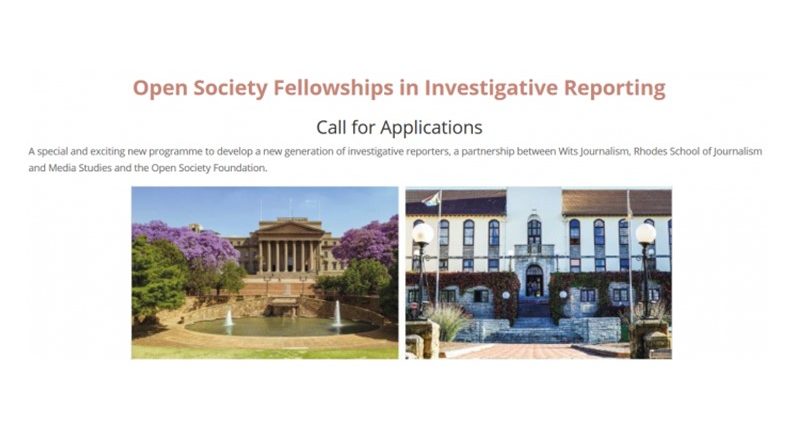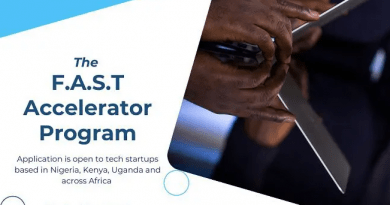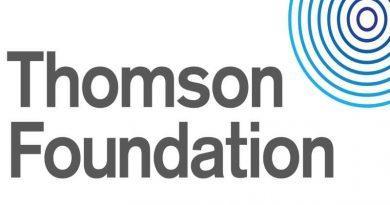Call for Application: 2019 Open Society Fellowships in Investigative Reporting (Funded Study/Internship to South Africa)
Application Deadline: September 21, 2019
A special and exciting new programme to develop a new generation of investigative reporters, a partnership between Wits Journalism, Rhodes School of Journalism and Media Studies and the Open Society Foundation.
Five Open Society Fellowships in Investigative Reporting are available each year for 2019, 2020 and 2021. Each fellowship will last for 18 months, consisting of 12 months’ study, 6 months’ internship and attendance at two international investigative journalism conferences (one in South African and one in the USA/Europe).
Fellows can study either the Wits University BA Hons in Journalism and Media Studies or the MA in Journalism and Media Studies, depending on their previous qualifications and experienced. They will also get an accredited certificate from a Rhodes PAMS course, a portfolio of work and letters of recommendation for their internships.
Eligibility
Candidates for the BA Hons must have a minimum of two years of journalism or relevant experience and be eligible for Wits Journalism’s mid-career Honours programme: you must either have an undergraduate degree with 65% or better, or pass through an RPL entrance test.
Candidates for the MA must have at least two year of journalism or relevant experience and be eligible for Wits Journalism’s MA programme: an equivalent of our BA Hons with 65% or better.
This is an affirmative action programme and black and female candidates will be favoured. Four of the positions will be reserved for South African residents, and the fifth is open to candidates from the African continent.
Course Structure
For the BA Hons in Journalism and Media Studies with a specialisation
in Investigative Journalism, the programme will be made up of four
courses and a research report:
– Journalism Studies
– Investigative Journalism A
– Data Journalism
– and and a choice of one of Video Journalism, Online Journalism, or Photojournalism
For the MA, the programme consist of three courses and a research report
– Media and Society
– Investigative Journalism
– Data Journalism
Research report: Based at Rhodes University for a semester, the fellows will do a major investigative project, under individual mentorship, along with a self-critical essay and two articles for publication.
The additional elements will be:
– One international conference chosen from:
– Investigative Reporters and Editors annual Data Journalism Conference in March in the USA
– IRE’s annual Investigative Journalism Conference in June in the USA – (for 2019 and 2021 only)
– The Global Investigative Journalism Conference, 2019 in Hamburg, 2021 venue TBC
– The African Investigative Journalism Conference held every Oct/Nov at Wits
– The Fundamentals of Social Accountability Monitoring course run by PAMS at Rhodes University.
The Rhodes semester
For the equivalent of the Research Report, the fellows will be based at Rhodes University for three months, where they will do a major investigation into a social or service delivery issue, under mentorship. Rhodes University J-School has put together a three-way partnership to facilitate this between themselves, their local newspaper Grocott’s Mail, and the Public Service Accountability Monitor (PSAM).
The students will do a three-week course in Fundamentals of Social Accountability Monitoring to provide a foundation for their project (see https://www.ru.ac.za/psam/studying/. They will be based at Grocott’s Mail with a combination of mentoring from the Grocott’s editor and the J-School lecturers. Their output for assessment will be a major investigation into the chosen topic, a self-critical essay on the project and two articles for Grocott’s Mail on the same topic.
Internships
After completion of their programme, the fellows will be placed in internships with investigative teams for six months. We have partnerships with amaBhungane, Daily Maverick, and News24 for this purpose. Students will be expected to work on investigative teams, and produce a portfolio of work at the end of the period.
What the Fellowship covers
The Fellowship pays all study and travel costs, as well as a stipend for the 18 months.
Applications
Applications for 2020, including a full CV, supporting documentation and two recommendations, must be sent by September 21, 2019 to [email protected].
For More Information:
Visit the Official Webpage of the 2019 Open Society Fellowships in Investigative Reporting




